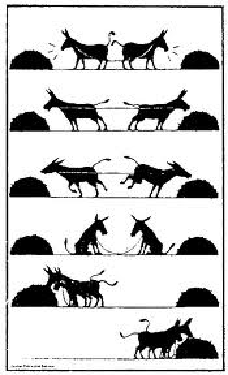|
Sometimes we get a very
confused image of who’s actually employed in Europe and where they come
from. We seem to lose sight of the great reality that lies at the very
centre of the idea of a European community – the concept that everyone
should have the freedom to be educated, to live and to work in a country
that shares the same value system and sense of fairness and equality. It
is no different from the right of American citizens to live and work in
different States.
That ideal is vital because it virtually eliminates
the notion of countries fighting with one another. That is why,
post-World War Two, the concept of a united Europe came about in the
first place. European countries – and the US of course – had been
engaged in two relentless world wars that had obliterated millions. No
one wanted to risk that again.
The kind of aggression that Hitler and the Nazis
stood for, the horrors of the Final Solution and the destruction of
cities, families and entire infrastructures, drove the recognition that
something had to be done to make sure it could never happen again. The
Versailles Treaty of World War One had so diminished German pride that
the humiliation, in the view of some analysts at least, led directly to
the Second World War. That couldn’t be repeated. Something more
constructive had to be worked out.
The thinking behind what was initially the European
Common Market was that if you put in place a common interest; if the
people of different nations can share the same objectives, then the
outcomes must be of benefit to all. Cooperation is better than conflict.

To me, it’s a no-brainer. Give people the opportunity
to live, get educated, work, bring up their families in other European
countries and they will be hugely enriched by the experience. They will
find familiar but different cultural ideas, religious convictions, ideas
about careers and politics, new languages and the opportunity to engage
from within different nation communities.
It’s a great way to build your knowledge and
understanding, to be able to share your own ideas with others of similar
or totally different views, to develop a much more international or
global outlook on the world.
We see people from across Europe living and working
in Scotland and it is fantastic that we have them here, contributing
their own experiences and drawing from ours. No single country can
operate in isolation, perhaps especially the smaller ones, and it is
vital that we engage with others wherever we have the chance.
So what is the make-up the people who are employed
across the European countries? The European Union Labour Force Survey
for 2012 came out a few days ago. Its findings are interesting and
informative:
·
15.2
million foreign citizens worked within the 27 EU countries.
·
This is 7
per cent of the total employed workforce across the member countries.
·
6.6 million
were citizens of another EU member state.
·
8.6 million
were from a country outside the EU.
·
At 67.7 per
cent, the employment rate for EU nationals from other countries was
slightly higher than national employment at 64.6 per cent.
·
216 million
people were employed in the EU.
·
15.2 per
cent of all employed persons were self-employed.
We ought to be encouraging more of our young people
to go to other European countries to study; we need to help more of our
own citizens to seek out interesting jobs and careers in other EU
countries.
Many Scots already live, or have lived, in countries
such as France, Germany and Spain and many more will, I hope, grab the
chance to do so before David Cameron manages to wrest the UK out of
Europe.
Bring those skills and experiences back home to
Scotland and you will enrich your own country as well as yourselves.
Let’s get more European!
Find
out more about Tasmina: www.tasmina.eu
|

